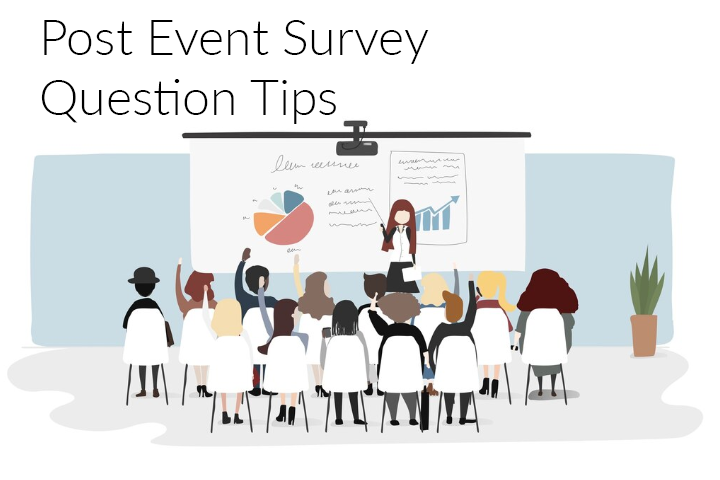
Post Event Survey Questions
July 1, 2024
Types of Events
When planning and executing events, gathering feedback is crucial. Different types of events require tailored approaches to post-event surveys. Here are two common types of events where post-event surveys are essential:
Conference
Conferences are large gatherings focused on a specific industry or topic. They typically feature multiple sessions, keynote speakers, and networking opportunities. Gathering feedback from conference attendees helps improve future events and ensure the content meets the audience's expectations.
Training Courses
Training courses are designed to educate participants on specific skills or knowledge areas. Post-event surveys for training courses help gauge the effectiveness of the training, the quality of the materials, and the impact of the instructors.
Why Is It Important to Send Post Event Surveys?
Improve Future Events
Feedback from attendees provides valuable insights into what worked well and what needs improvement. This information is essential for refining future events, ensuring they are more successful and engaging.
Builds Trust
By actively seeking feedback, you demonstrate to your attendees that you value their opinions and are committed to improving their experience. This builds trust and fosters a positive relationship between you and your participants.
Help Gauge Speaker Impact
Post-event surveys can help you understand how impactful and engaging your speakers were. This information is crucial for selecting future speakers who can captivate and educate your audience.
Find Sponsors
Feedback can also highlight the aspects of your event that were most appealing to attendees. This information is valuable when approaching potential sponsors, as it helps demonstrate the event's value and reach.
When to Send It
SurveyNoodle recommends sending a post-event survey while the experience is still fresh in people's minds, ideally no later than two days after the event. Sending the survey the next day is often the most effective. Additionally, consider sending a reminder a few days later to ensure maximum participation.
Pre-Event Surveys
Pre-event surveys are just as important as post-event surveys. They help you understand your audience's expectations and needs. Here are a few key questions to ask:
- How did you find out about the event?
- What sessions are you most interested in?
- Are there any special accommodations you need?
How to Send the Survey
Email or SMS
Send the survey via email or SMS to those who registered for your event. This direct approach ensures that your survey reaches your intended audience promptly.
Feedback Button
Include a feedback button on your event page. This allows attendees to provide feedback quickly and easily while they are still engaged with your event content.
Types of Questions to Use
Use SurveyNoodle’s Free Survey Question Generator
SurveyNoodle offers a free survey question generator that can help you create effective questions tailored to your event and the goals you have in mind with the survey.
Likert Questions
Likert questions are great for measuring attendee satisfaction and engagement. You can find more about Likert questions in our Likert Scale blog post.
Future Event Suggestions
Ask attendees what they would like to see in future events. This helps you tailor future events to meet their interests and needs. For example:
- What topics would you like to see covered in future events?
- Are there any speakers or industry experts you would like to hear from in our upcoming events?
- What type of activities or sessions do you find most engaging and would like to see more of?
- Do you have any suggestions for improving the event format or schedule?
- What additional resources or materials would you find helpful for future events?
Remaining Questions
Ask what remaining questions attendees have after the course or conference. This helps you identify areas that may need more coverage or clarification. For example:
- Do you have any unanswered questions following the event? If so, please specify.
- Are there any topics you feel need further clarification or deeper exploration?
- What additional information or resources would help you better understand the event content?
- Were there any parts of the event that were unclear or confusing? Please explain.
- Is there any additional support or follow-up you’d like from us regarding the event content?
Least Liked Aspects
Find out what attendees liked least about the event. This feedback is crucial for making improvements and addressing any issues. For example:
- What did you like least about the event?
- Were there any sessions or activities that you found uninteresting or unhelpful?
- Did you experience any difficulties or issues during the event? If so, please describe.
- Were there any aspects of the event organization or logistics that you think could be improved?
- Is there anything you would change about the event if you could?
Survey Tips
Express Your Gratitude
Thank your attendees for their participation and feedback. This shows appreciation and encourages future engagement.
Measure Change Over Time
Use the same survey to measure change over time. This helps track improvements and identify trends.
Turn on Sentiment Tracking
SurveyNoodle’s sentiment tracking feature helps you understand the overall sentiment of your attendees' feedback, providing deeper insights into their experiences.
Keep It Short
SurveyNoodle research has found that five questions is the ideal length for surveys. Keeping your survey short ensures higher completion rates and more accurate feedback.
Conclusion
Sending post-event surveys is essential for improving future events, building trust with your audience, and ensuring attendee satisfaction. By following these guidelines and utilizing SurveyNoodle’s tools, you can create effective surveys that provide valuable insights. Engage with your participants, gather meaningful feedback, and continue to enhance your events for greater success.
Whether you are an experienced event planner or just starting, incorporating post-event surveys into your workflow is a key step towards creating memorable and successful events.

